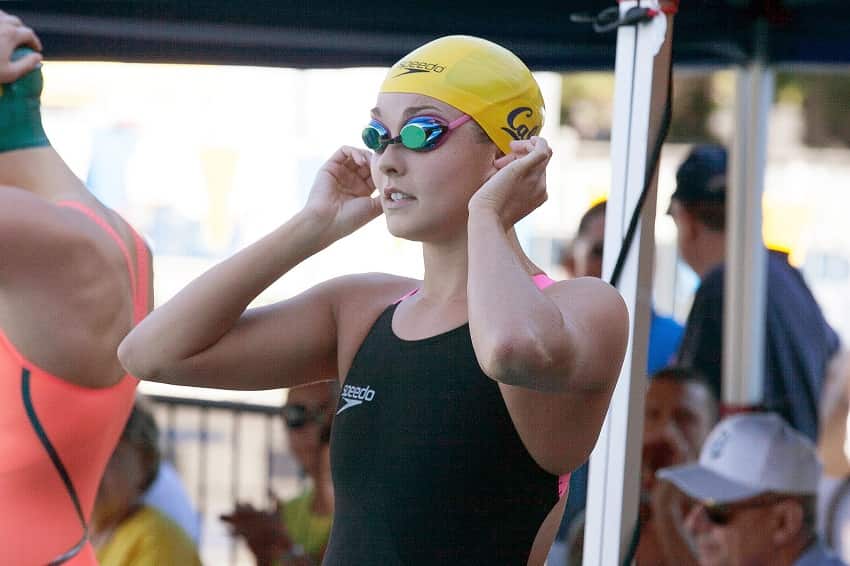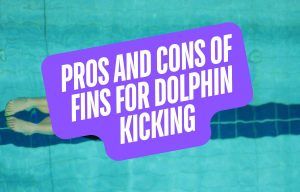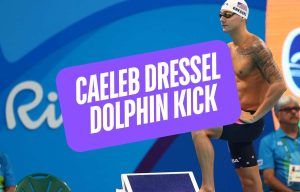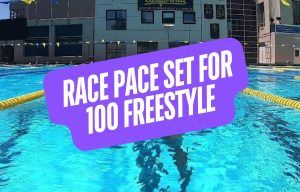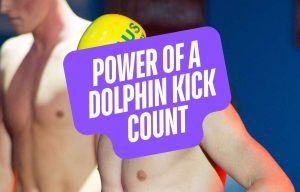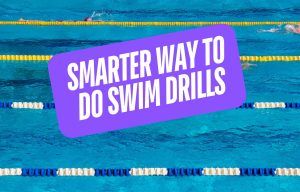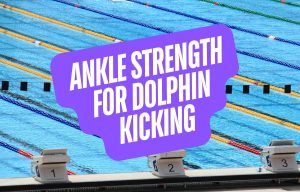The swimmer appetite is legendary.
It’s a byproduct of the hours and hours that we devote to swimming around the black line and for some swimmers, especially you distance folks, eating is largely a part-time job.
While eating lots of food is something we are known for (besides having the sought-after swimmers body, of course), that doesn’t mean that most of us eat as good as we can. We use those 8,000m swim workouts as an excuse to plow through a large pizza in one sitting after practice.
We know that nutrition plays a critical role in performance in the pool, just as important a factor as your sleeping habits. If you consider yourself as the finely tuned machine that you are then you know that putting low grade fuel into a high performance machine means you are short-changing your potential.
Douglas Kalman, PhD, RD, FACN, FISSN, has worked with summer and winter Olympic athletes and pro athletes in the MLB, NFL, NBA, and even combat athletes. More specific to you, the water-logged athlete, Dr. Kalman has worked two Olympics for and with swimmers (2008 & 2012) and is the sports nutritionist at the Coral Springs Aquatic Complex with coach Bruno Darzi.
Below are 5 quick nutrition tips he has for competitive swimmers:
1. Eating well increases recovery.
“When looking to maximize your nutrition for performance, it is most important to think about how you can increase or enhance recovery from training,” says Dr. Kalman.
What separates fast swimmers from the “almosts” isn’t always talent or genetics; it’s how well prepared they are to train or race again. The elite know that time spent practices is where you heal and recovery in order to be ready to perform at a high level at your next workout.
“Recovery time is where your body heals and preps itself for the next event,” adds Dr. Kalman.
2. Eat like a champion to swim like one.
The swimming taper does some funny things to swimmers. Feeling light on their feet and fast in the water they think that they can treat their mouth like a dumpster.
But as Dr. Kalman notes, the couple days before the big race are when you need to be the most focused on eating well.
“What and how you eat in the 48 hours leading up to a event/competition is the most crucial for affecting performance,” he says.
3. Eat according to event type.
Your training and event type should dictate your nutrition. After all, you know that as a sprinter maybe sitting down with the distance swimmers at the buffet isn’t such a great idea.
“Your training volume dictates your carbohydrate need along with the type of event you are in (50m much different than 200m),” he notes.
4. You still need to drink lots of water.
It’s a common misconception that because we swim in a pool that we don’t need to hydrate. But we do.
Swimmers sweat, big-time. Which means that you should have a water bottle at the end of the lane waiting for you throughout your workouts.
“Hydration is often overlooked by swimmers both in their training and in competition,” sais Dr. Kalman. “This is because we often do not feel ourselves sweat when in the water.”
So how much water should we be drinking?
“Set your minimal fluid intake at 3/4 gallon for females and 1 gallon for males daily,” suggests Dr. Kalman.
5. Don’t neglect your protein.
While swimmers tend to be known as very capable of destroying vast amounts of carbs, don’t forget that you need protein to keep muscle recovery going strong.
“Protein based foods are your friends as part of recovery nutrition,” says Dr. Kalman.
“Aim for each meal and snack to contain some protein. Main meals should contain 20 to 40 grams protein per serving to optimize muscular adaptations.”
A special thank you to Dr. Kalman for stopping by to share his knowledge. You can also find him online as co-editor of the Journal of International Society of Sports Nutrition.
Up Next:
The Best Advice I’ve Ever Heard a Swim Parent Give Their Kid. Here is the most powerful–and simplest–words of encouragement to give your little swimmer each day before practice.
How to Prevent Swimmer’s Shoulder. If you’ve swum for any kind of meaningful time you’ve brushed paths with the most popular of swimmer injuries. Here is a full guide to steering clear of swimmer’s shoulder.
Swimmers: Why You Need to Be Meal Prepping. One of the fastest ways to corral your nutrition is by meal planning and meal prepping. Here’s why this simple tactic can be so effective.

